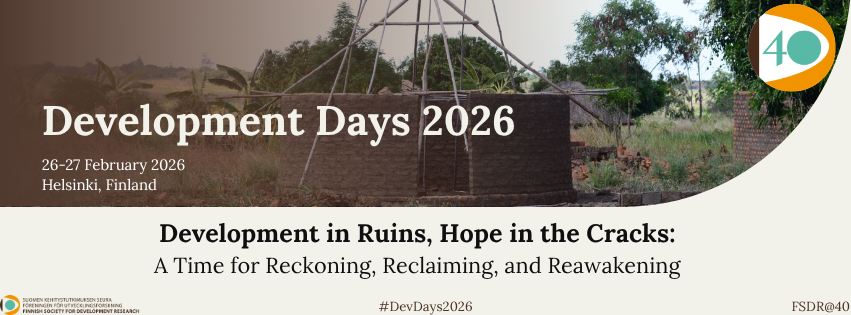Academic panel (3–4 papers)
Coordinators:
Tapio Nykänen, Associate Professor, Resistance, Resilience & Reconciliation, University of Oulu (tapio.nykanen@oulu.fi)
Helena Ristaniemi, Postdoctoral Researcher, University of Oulu (helena.ristaniemi@oulu.fi)
Global crises—such as climate change, rising geopolitical tensions, and biodiversity loss—can become causally entangled across multiple global systems, generating emergent harms that exceed the sum of their individual parts and produce vulnerabilities across both global and local scales (Lawrence et al. 2024).
For many sparsely populated regions, these global dynamics take on a distinctive form: they converge with demographic decline, population aging, out-migration, and the withdrawal of services, creating what might be called a polycrisis of sparsely populated regions. This localized polycrisis intertwines global pressures with the erosion of everyday infrastructures of governance, livelihood, and care.
At the same time, sparsely populated landscapes can hold deep cultural and personal significance for their inhabitants: they remain places where belonging, creativity, and renewal are possible. In many cases, a sparsely populated region is also a cultural environment in its own right, providing a basis for positive affects such as joyfulness, rootedness, and playfulness, as well as for alternative lifestyles and resistance. Even as the polycrisis reshapes local environments, possibilities for human agency do not necessarily disappear.
We invite papers that explore hope and affective agency within the polycrisis of sparsely populated regions. We especially encourage empirically grounded analyses that address how people navigate specific combinations of challenges and opportunities in their everyday lives. We particularly welcome contributions drawing on local and Indigenous knowledge perspectives, as well as comparative work foregrounding youth and intergenerational relations.
While the notion of polycrisis can be seen as a general and potentially depoliticizing frame—treating crises as given—we argue that it retains heuristic value by illuminating how political, economic, ecological, and social disruptions intersect and accumulate. However, we equally welcome contributions that critically interrogate polycrisis thinking and propose alternative ways of approaching intergenerational challenges related to climate change, inequality, or demographic transformation.This Working Group will take place in the form of paper presentations (20 minutes each), and the session will be organized onsite.
Email addresses for submissions and/or inquiries:
Maximum word count for paper submissions is 500 words. Accepted participants may, if they wish, send full papers in advance to the Chairs so that comments and discussion may be better tailored. This is optional and not required.
